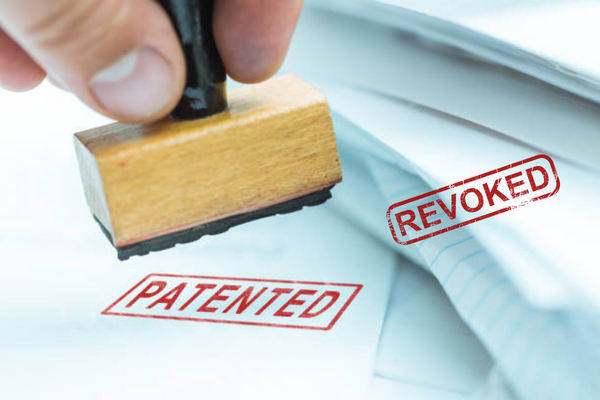When a patent is granted, it’s not always the case that the patent will remain unopposed by any third party till the lifetime of patent. The patent may be challenged by certain people and the method to challenge the patent is by way of filing a revocation petition. Revocation of patent basically means cancellation of rights granted to the owner of the patent.
Revocation proceedings can be initiated by the Central Government or by any interested person who has been injured or affected by the continuance of the Patent. It can also be initiated by a counter claim in a suit for infringement.
Grounds for Revocation
Section 64 of the Patents Act, 1970 contains several grounds for revocation of patents:
- the invention claimed in the specification has already been granted to another person in India
- the patent was granted on the application of an individual who was actually not entitled to apply;
- the patent was obtained wrongfully from another person who is actually entitled for the patent;
- the invention claimed in the complete specification is not an invention as per the Patents Act, 1970;
- if the invention claimed is not new and is already known to the public in India
- the invention claimed is obvious and it does not involve any inventive step;
- the invention claimed is not useful or industrially applicable;
- the complete specification does not sufficiently describe the invention and does not describe the best method by which invention is to be performed,
- that the scope of any claim of complete specification is not defined sufficiently or clearly;
- that the patent was obtained on the basis false suggestion or representation;
- that the subject of any claim of the complete specification is not patentable under Patents Act;
- that the invention claimed in the complete specification was secretly used in India;
- that the applicant did not furnish all the information required for granting of patent or has furnished false information;
- that the applicant violated any direction for secrecy passed under section 35 of the Patents Act
- that permission to amend the complete specification under section 57 or section 58 was obtained by fraud.
- that the complete specification does not properly disclose the information relating to geographical origin or source of biological material used in the invention;
- that the invention claimed is a traditional knowledge of the local community in India or elsewhere.
Other Provision Concerning Revocation
As per section 65, after the patent is granted, if the Central Government is satisfied that the patent is for an invention relating to atomic energy for which no patent can be granted then the Central Government may direct the controller to revoke the patent.
Under section 66 if the Central Government is of the opinion that a patent granted or mode in which it is used is mischievous to state or public then the controller may revoke the patent after giving an opportunity to be heard to the patentee
In Enercon (India) Ltd and Ors. v Enercon Gmbh (2014) 5 SCC 1, it was laid down by Supreme Court that if a party has instituted a post-grant opposition against the patentee, then he cannot institute revocation against the same patent.
Role of IPR/Patent attorney in revocation petition
- The IPR/patent attorney assists the client in drafting of patent revocation petition.
- The IPR/patent attorney facilitate the complex procedure of revocation and assist the client for best course of action.
- The IPR/patent attorney will assist the client in case someone files a revocation petition against the patent of the client.

